Product Storytelling in the World of Headless Commerce
At its core, product storytelling is the art of weaving a compelling narrative around a product or service. Instead of just listing features or benefits, you're engaging customers on a deeper, emotional level, offering them a story they can connect with.

Have you ever wondered why certain products make such a lasting impression? What separates Apple from any other tech brand or Starbucks from any other coffee shop? The secret lies in their stories. And guess what? You don't have to be a renowned brand to leverage this power.
Rich storytelling is the core of Crystallize headless commerce. Re-imagine eCommerce and a case study of a project that brought Crystallize to life are all about product storytelling. After all, Crystallize is conceptualized as a single source from which you can tell the story behind your brand and product with ease and build a stronger customer experience by inspiring and informing your audience on every channel of interest (resulting in higher conversion rates, a more sticky customer experience, and fewer interactions via customer support of course).
Every product has a story; it's all about how you tell it (and who's backing your efforts).
The Story Behind a Product
Rich storytelling is all about the details. The materials used, the manufacturing process, and the philosophy behind the brand. Inspiring use cases of the product and products that combine well are all key. Of course, utilizing beautiful images, videos, and copy.
Imagine you are up for a pizza (Friday pizza night, anyone!?). Would you rather choose the pizza where you get the story behind the produce used (where the produce is grown and how the cheese is made) complimented by the philosophy of the farmer and the chef? Or one where you get an image and price without any additional information? I am sure you would choose the former rather than the latter.
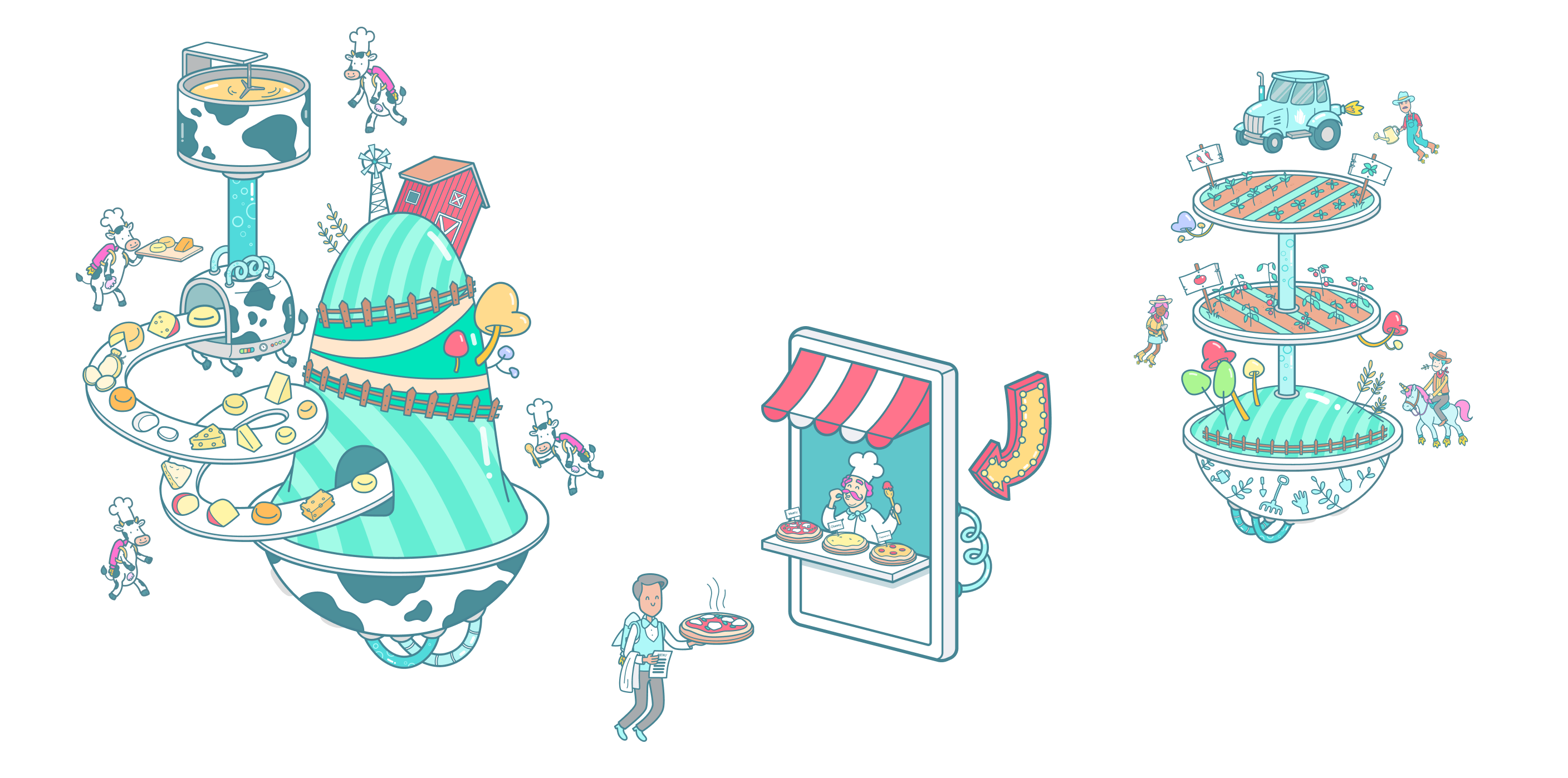
Apple doesn't just sell devices. They sell experiences. Their narratives often focus on how their products fit seamlessly into everyday life, enhancing and simplifying it.
Every Nike ad you've seen is more than just about athletic wear. It's about pushing your limits, achieving your best, and the spirit of Just Do It.
Starbucks isn't just selling coffee. It's selling a third place between work and home, a place to relax and belong. Their stories revolve around community, connection, and warmth.
Sweef, a furniture manufacturer from Sweden and one of the most recent users of Crystallize (thanks to our tech partner, ZCO Stockholm), tells an in-depth story about their fabric, like with their Garden Party fabric, for example, delivering that playful feel allowing you to imagine yourself owning those sofas. Product pages deliver on that promise by having all the information about the materials' origin story and quality so you can easily configure and make the products your own.
It is a beautiful example of telling the story behind the product.
Apple doesn't just sell devices. They sell experiences. Their narratives often focus on how their products fit seamlessly into everyday life, enhancing and simplifying it. Every Nike ad you've seen is more than just about athletic wear. It's about pushing your limits, achieving your best, and the spirit of Just Do It. Starbucks isn't just selling coffee. It's selling a third place between work and home, a place to relax and belong. Their stories revolve around community, connection, and warmth. Sweef, a furniture manufacturer from Sweden and one of the most recent users of Crystallize (thanks to our tech partner, ZCO Stockholm), tells an in-depth story about their fabric, like with their Garden Party fabric, for example, delivering that playful feel allowing you to imagine yourself owning those sofas. Product pages deliver on that promise by having all the information about the materials' origin story and quality so you can easily configure and make the products your own. It is a beautiful example of telling the story behind the product.
The Anatomy of Effective Product Storytelling
It's not just about telling a story; it's about telling the right story. So, what makes for a captivating product narrative?
Emotional Connection. Consider Apple's "Think Different" campaign. It wasn't just about computers. It was about the rebels, the dreamers, the ones who see things differently.
Authenticity. People can spot a fake from a mile away. Ensure your story aligns with your brand's values and mission. It should come from a genuine place.
Relevance. Your story needs to resonate with your target audience. Nike, for instance, isn't selling shoes; they're selling the spirit of athleticism.
Understand your audience, identify your brand's unique value, and connect emotionally.
Ok, now to the core of product storytelling.
Product Universe
The product universe is the technical product model or content model that enables product storytelling for your brand. It is a combination of product and content types (shapes) you need to present and market your products.
The craft of designing your product universe is often referred to as content modeling. This is the process of defining the atomic components of the information you are managing and the relations between different types of information.
The takeaway of a perfectly designed product universe is that you have the tools to inspire and inform your customers to make a purchase, ideally without having to contact customer service.
Below is an illustration of a product universe for a store that sells kitchen appliances and groceries. In this case, we see that the product universe includes two types of products: ingredients and appliances.
They each have a different set of components and relationships. In addition, there is a relation between a recipe, ingredients, appliance as well as the chef that has created the recipe. In short, you know what and how much of each ingredient is required to cook a recipe. You also get the information about the appliances required, like a pasta maker.
Now, if you are selling food, furniture, cars, or clothes, your product universe will differ. They have different requirements for components and relationships to enable you to design and build the customer journey in the storefront.
If we stay with the example of an online grocery store, you can say that the content model below is optimized for three main concerns, in addition to supporting the desired customer experience in your storefront:
- SEO: you can create content that allows your customers to find you via dishes they want to cook. A search for produce or even appliances. This enables multiple entries for product discovery via 3rd party search engineers. We talk extensively about this in our eCommerce SEO guide for 2022.
- Social Sharing: content like 5 healthy dishes for your week is easily shared by your customers who are constantly thinking about what to cook.
- Merchandising: once you have some new and exciting products or products you really want to sell more of, you can create a beautiful recipe featuring those ingredients.
Most eCommerce software platforms out there do not enable you to define such rich product universes. They are usually restricted to a limited type of product with a one-size-fits-all solution. Make sure you dive into the capabilities of modeling your product data when looking for a service to power your next-generation eCommerce based on product storytelling.
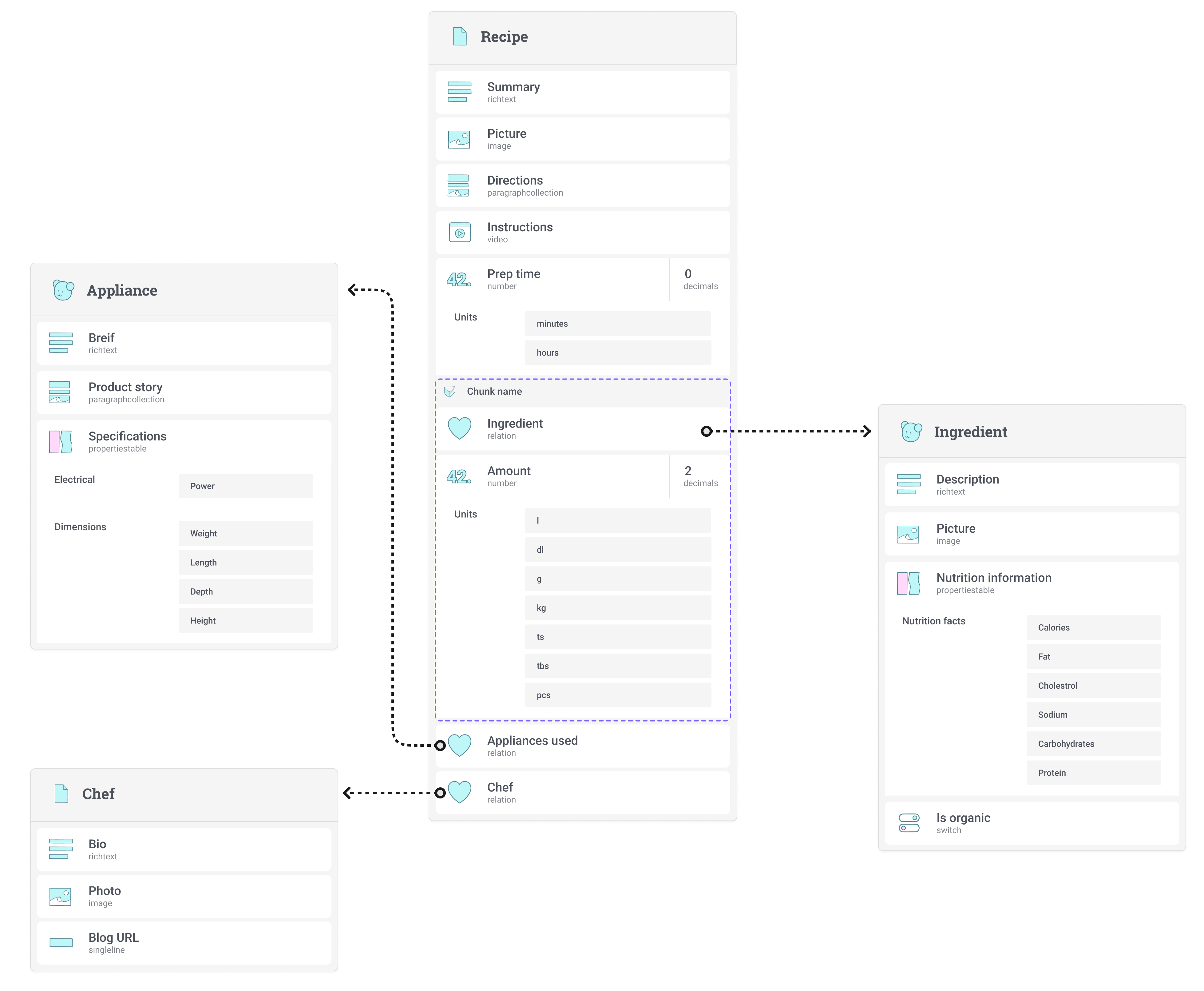
An Inspiring Customer Journey
The power of product storytelling can enable your customers to discover products they did not know they needed without having to use classical menu navigation or search.
If we take a look at Sweef's example again, they have designed a unique product universe that enables complex furniture configurators but also a very visual way of merchandising products. They heavily rely on product pictures. All images have relations to which products are in the photo. Even the exact configuration of the sofa, chair, or pillow.
This direct merchandising of products in all images enables Sweef to create a unique and inspiring shopping experience, much like walking into a digital showroom and always having access to the full details of any product you see.
An Inspiring Customer Journey
The power of product storytelling can enable your customers to discover products they did not know they needed without having to use classical menu navigation or search. If we take a look at Sweef's example again, they have designed a unique product universe that enables complex furniture configurators but also a very visual way of merchandising products. They heavily rely on product pictures. All images have relations to which products are in the photo. Even the exact configuration of the sofa, chair, or pillow. This direct merchandising of products in all images enables Sweef to create a unique and inspiring shopping experience, much like walking into a digital showroom and always having access to the full details of any product you see.
The Tech that Enables Storytelling in eCommerce
Headless commerce platform enables you to build your own front-end experience. This is because all your data is available via an API, in our case, a fast GraphQL API. This means the backend (API service) is decoupled from the front end, giving you limitless possibilities to design and build your own customer experience.
Is headless technology a requirement for executing product storytelling? Well, your mileage may vary, but in my opinion, having no limitations on front-end technology makes it easier to achieve on account of the no limitations part.
Your frontend development team can build the frontend, or even multiple frontends, connected to the same backend. The frontend technology moves so fast, and you can always adopt the hottest frameworks, such as Astro, Svelte, Remix, or even the good old Next.js.
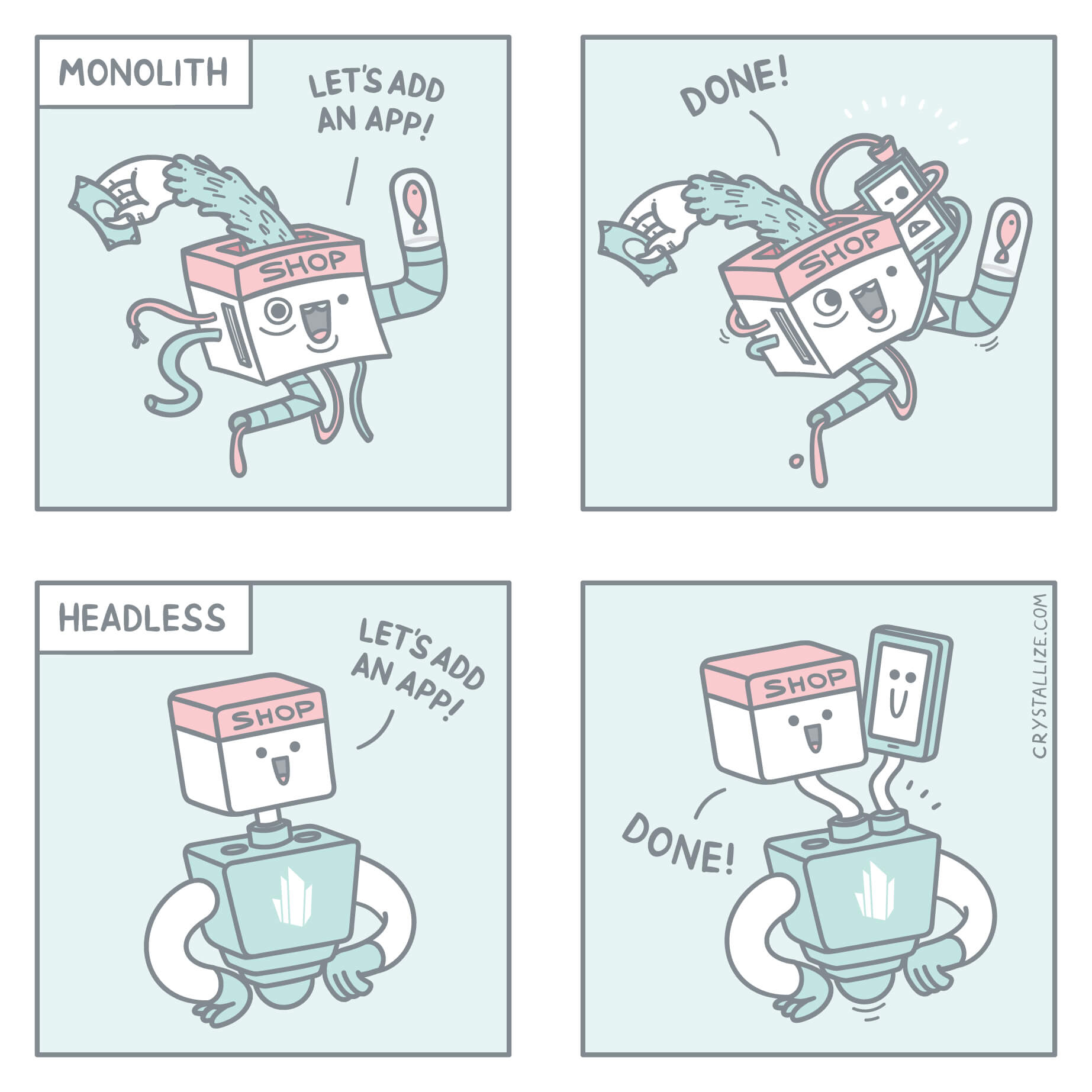
🚀Headless Commerce Accelerators
In the headless commerce world, you often hear about composable commerce, where one combines multiple backend services to make up your API infrastructure. This means that you have to make some decisions about what those services are and how to design a headless architecture that solves your business case.
To accelerate these architecture choices, we have designed and released open-source headless commerce accelerators. These include an opinionated configuration of Crystallize integrated with popular flows and integrations like payment gateways. You also get a fully functional storefront in popular frameworks like Remix and Next.js. You can use these as a baseline for your custom experience, learn some best practices, or just get inspiration.
These accelerators enable you to get results much faster.
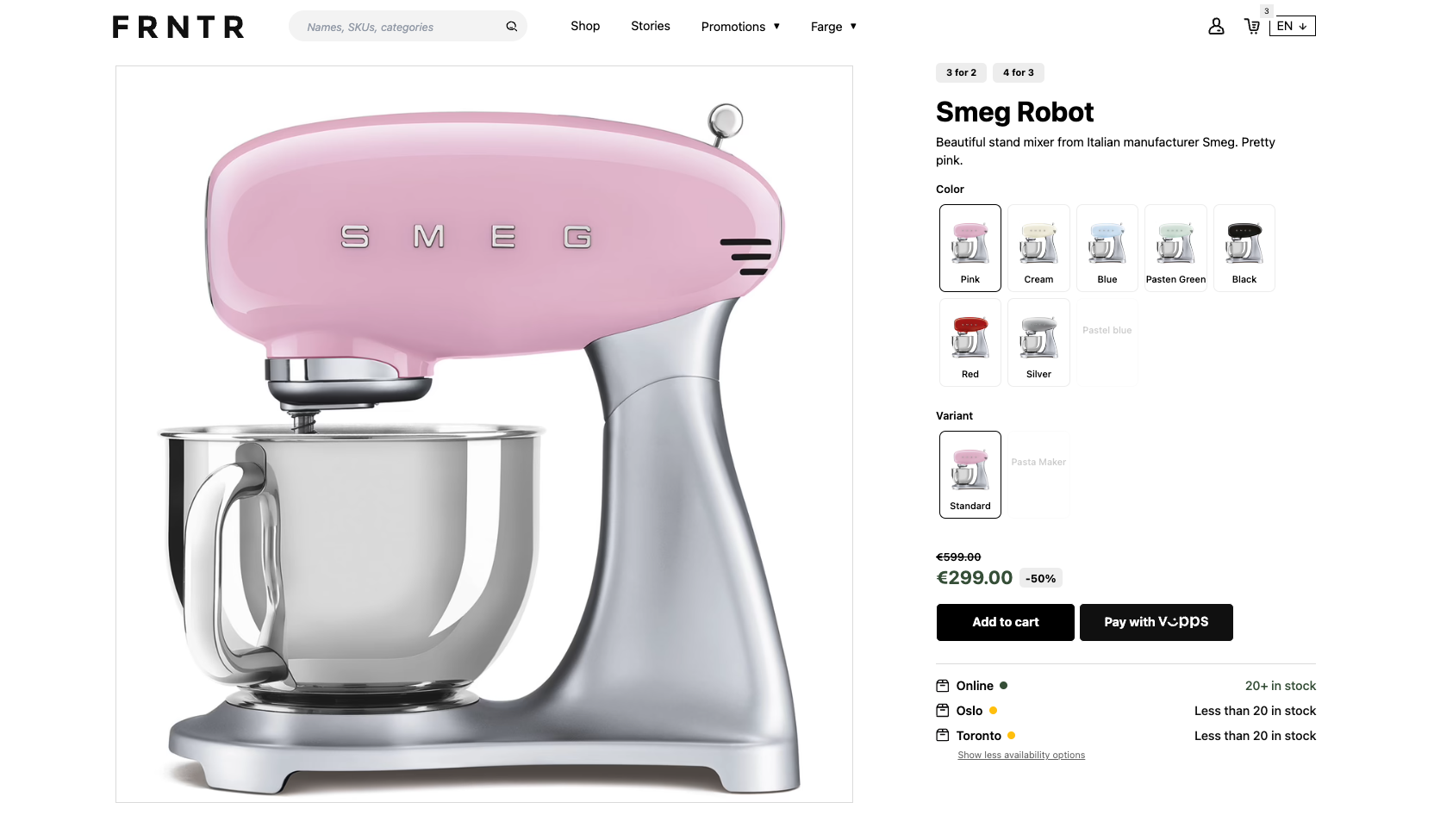
Benefits of a Headless Commerce Service
There are many benefits of adopting a headless commerce service. Let us take a look at some of them.
A modern tech stack means that you can build a superfast storefront that directly impacts your online conversion. It is a known fact that a faster page speed for your webshop increases the conversion rate. To check how much you can potentially increase your online revenue with a faster webshop, we have created a Page Speed RIO calculator. In short, faster is better.
While on the topic of page speed, we have to dive into SEO. Google is using the page experience, which measures the performance of your website visitors. Basically, if your site is fast, you will rank higher, and the opposite is if your site is slow. You can easily check your site speed with the PageSpeed Insights tool from Google.
In addition to ranking you higher in search engines, when your site is fast, you get the same effect on Google Ads. Site Speed affects the price you pay for Google Ads. That is quite much, as well. Optimizing your webshop for speed will give you more ad-views for your spending.
Last but not least, less computing power and data transfer leads to less energy consumption. This means it helps you to achieve your CO2 neutrality goals. And save money at the same time.
Product storytelling isn't a fleeting marketing trend. It's an age-old practice refined for the digital era. In weaving captivating tales around your products, you not only elevate their value but create a lasting bond with your consumers.
Having a supportive partner on your journey, one that’s in the know-how and offers future-proofing certainly helps keep your stories more memorable and alive much longer.
I invite you to give Crystallize a chance. START building for FREE with Crystallize, or schedule a 1-on-1 demo so we can show you how Crystallize fits your use case.
You Might Wanna Check These As Well👇
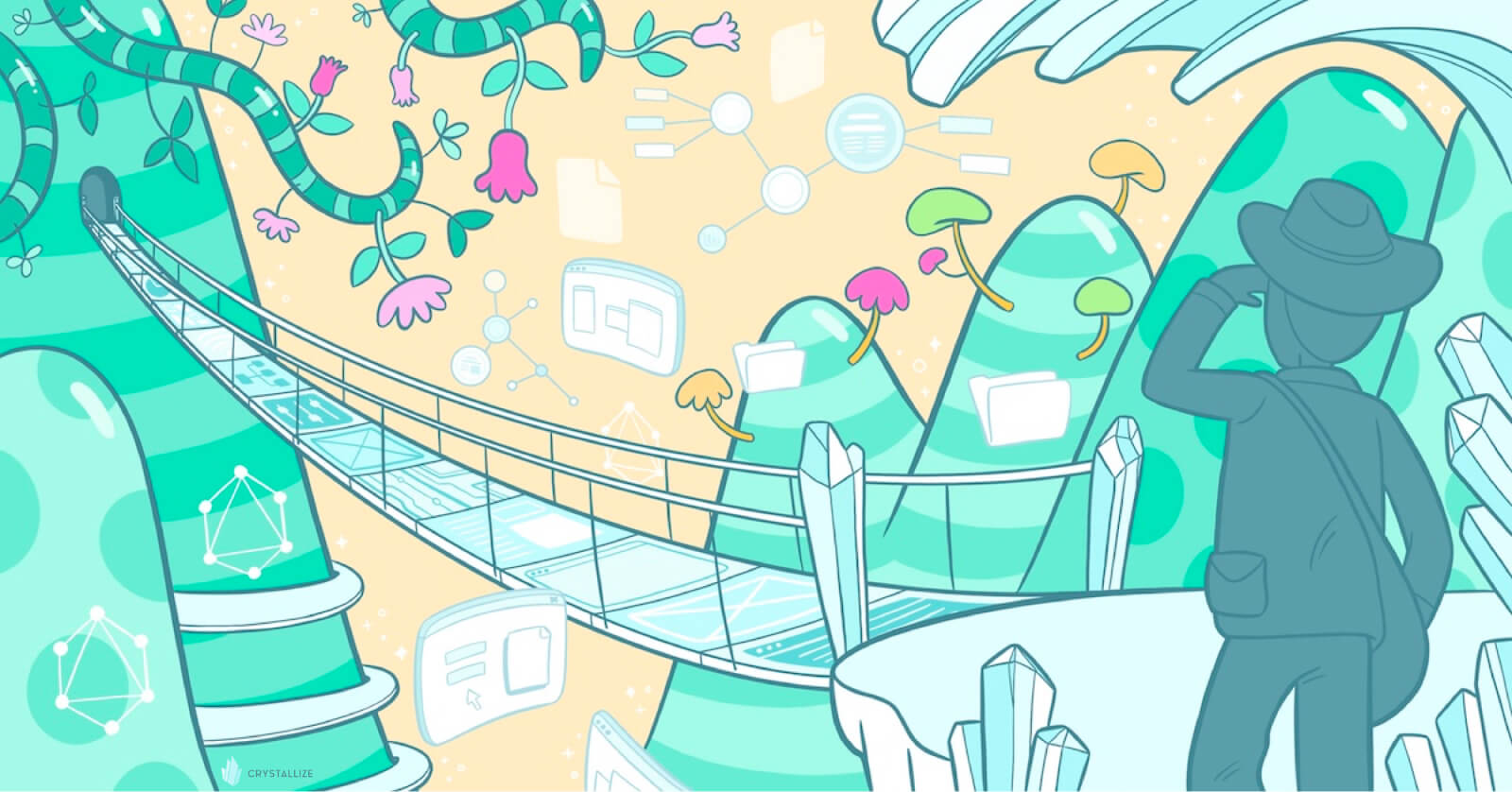
Reimagining eCommerce: the Story of Crystallize
Instead of building a better PIM, CMS, eCommerce, or order management service, we wanted to design an API layer you need to market and sell your products on any channel, at any scale, and in any way you want it. A perfect product story engine, if you will.
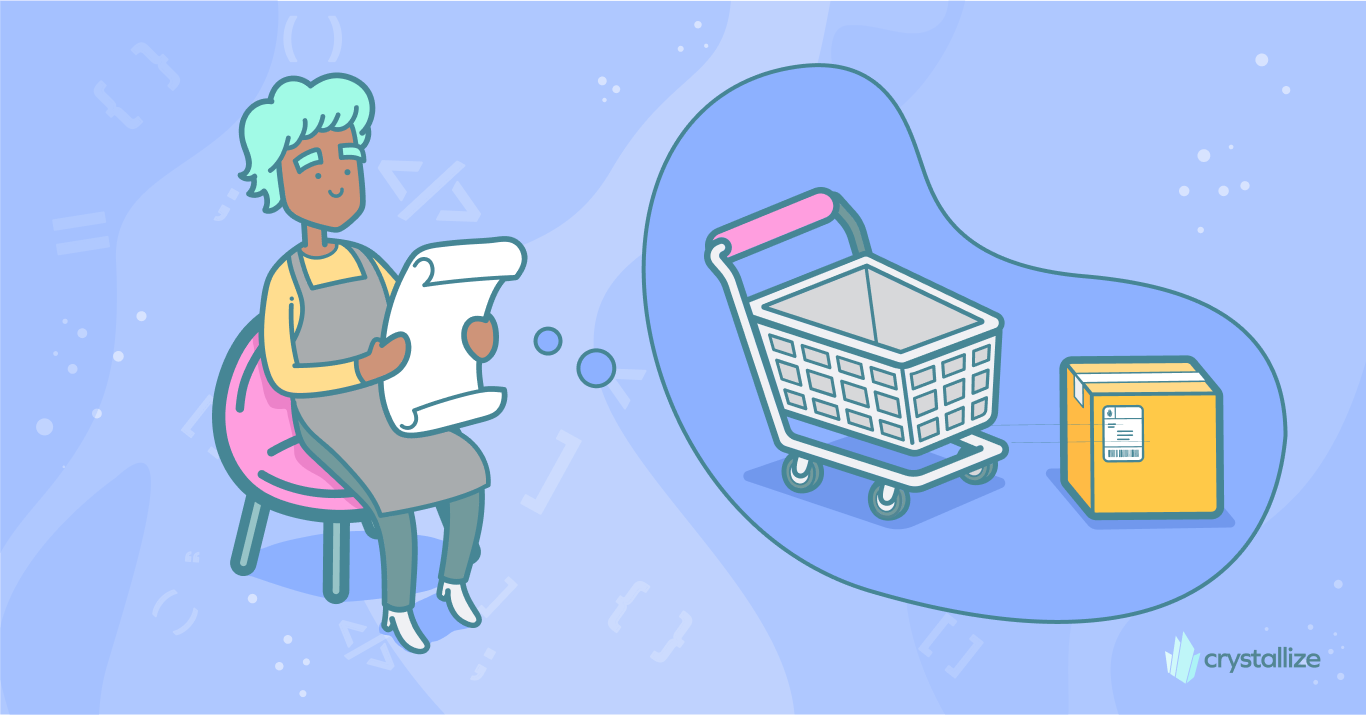
Towards Next-Generation Commerce Platform For Tailor-Made Customer Experiences
Our journey to reimagining eCommerce is not about adding features. It's about delivering core, modern commerce business requirements and future-proofing tech stacks.
